|
Jonathan Sauder I'm a PhD student at EPFL in Lausanne, Switzerland, working at the intersection of 3D computer vision, machine learning, and coral reefs. My goal is to use recent breakthroughs in AI to create the next generation of tools to monitor the ocean's previous ecosystems at unprecedented scale. I am supervised by Devis Tuia leading the Environmental Computational Science and Earth Observation Laboratory, and Anders Meibom, who leads the Laboratory for Biological Geochemistry which hosts the Transnational Red Sea Center. Previously I obtained my master's degree in computer science at the TU Berlin, where I worked on research in machine learning, signal processing, and compressed sensing. |
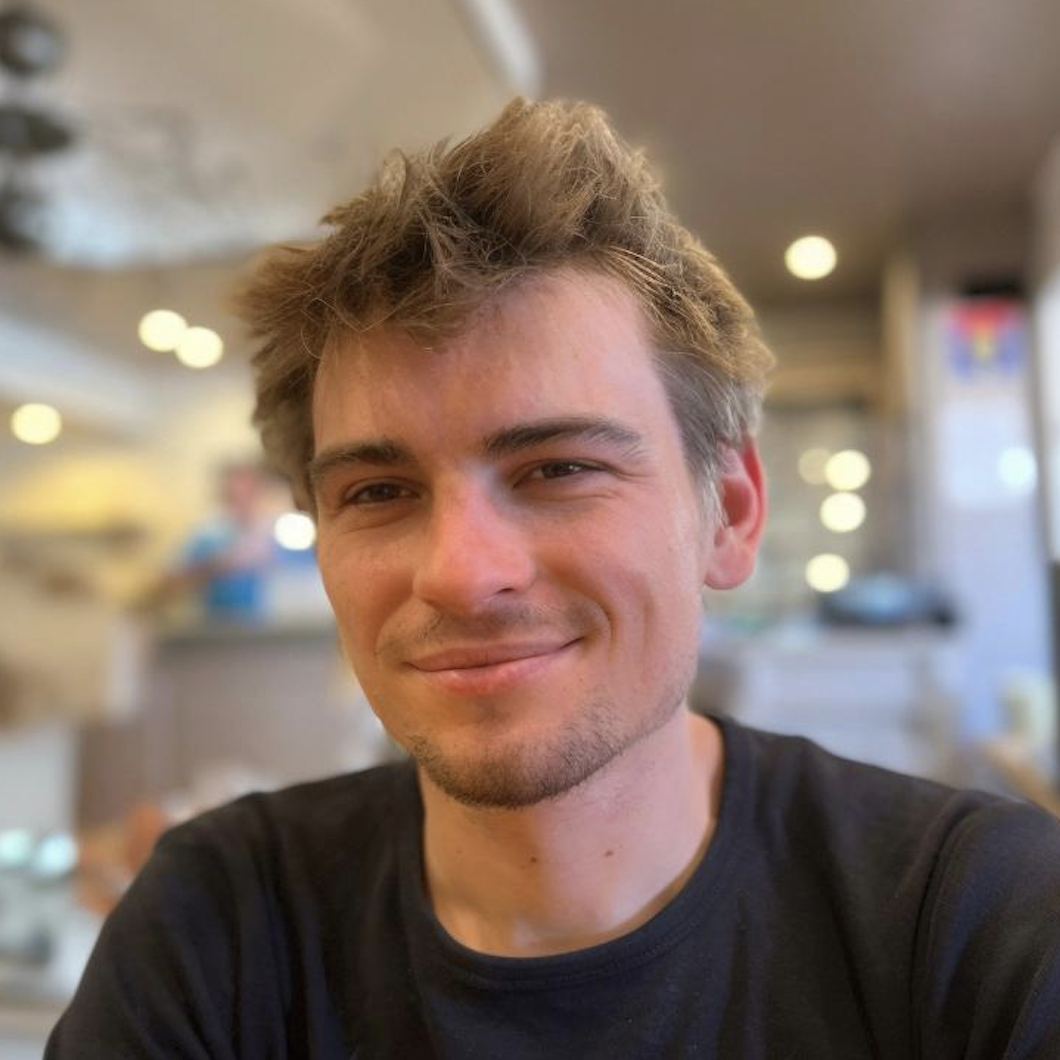
|
Research |
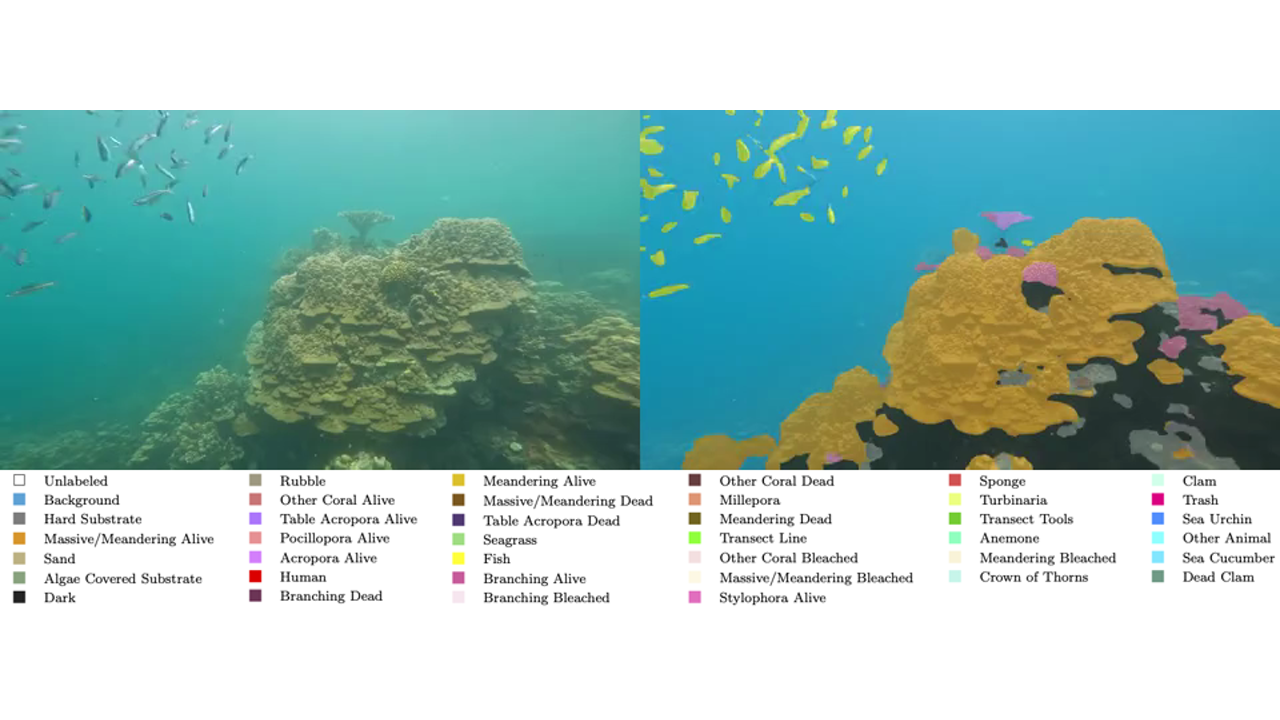
|
The Coralscapes Dataset: Semantic Scene Understanding in Coral Reefs
Jonathan Sauder, Viktor Domazetoski, Guilhem Banc-Prandi, Gabriela Perna, Anders Meibom, Devis Tuia Preprint, 2025 Project Page / ArXiv The first large-scale dense semantic segmentation dataset in coral reefs. |
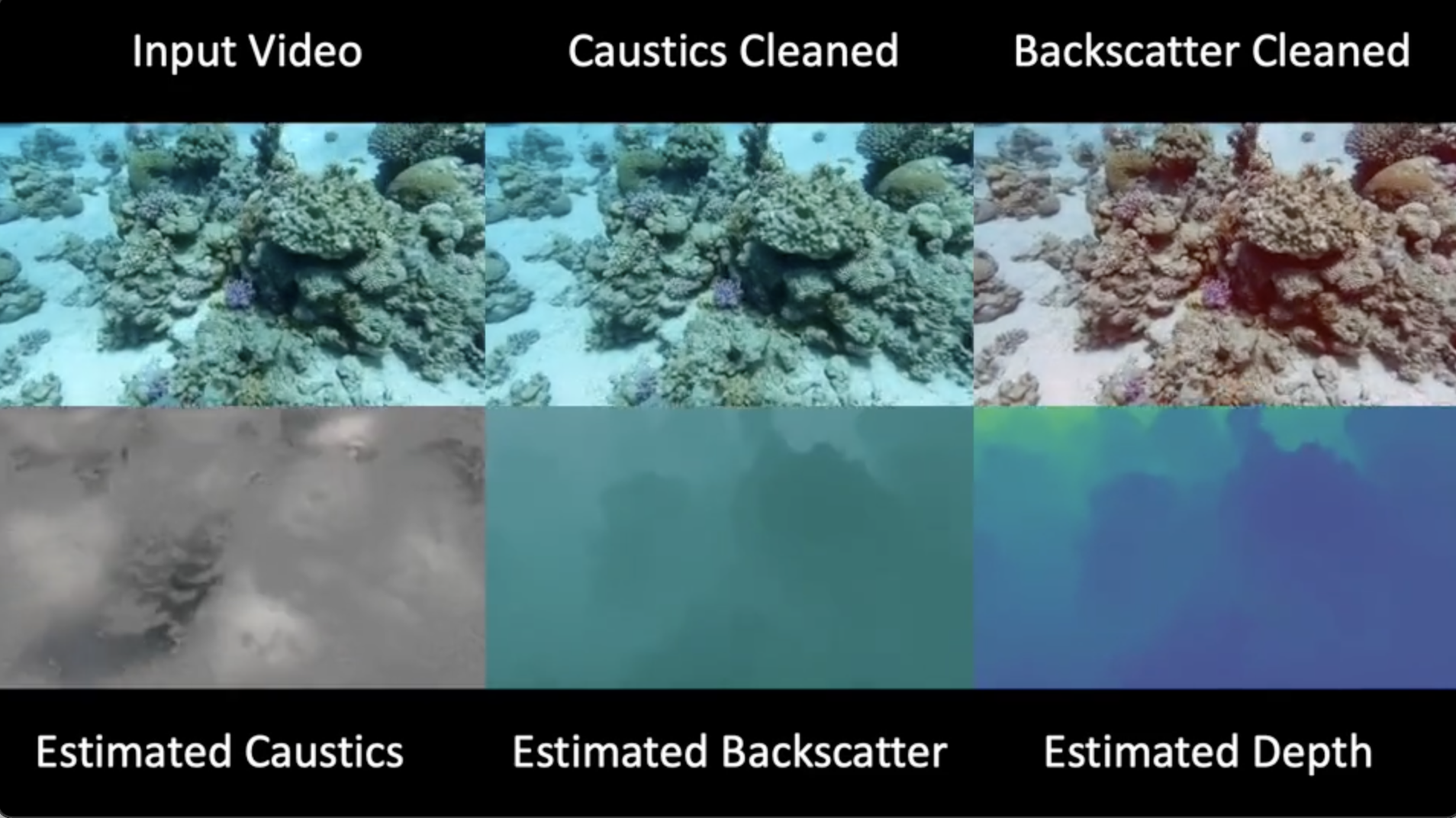
|
Self-Supervised Underwater Caustics Removal and Descattering via Deep
Monocular SLAM
Jonathan Sauder, Devis Tuia ECCV, 2024 Project Page / Paper Undo the degrading effects of the water column and noise patterns from sunlight on water surface by using self-supervised monocular SLAM to devise effective learning objectives. |
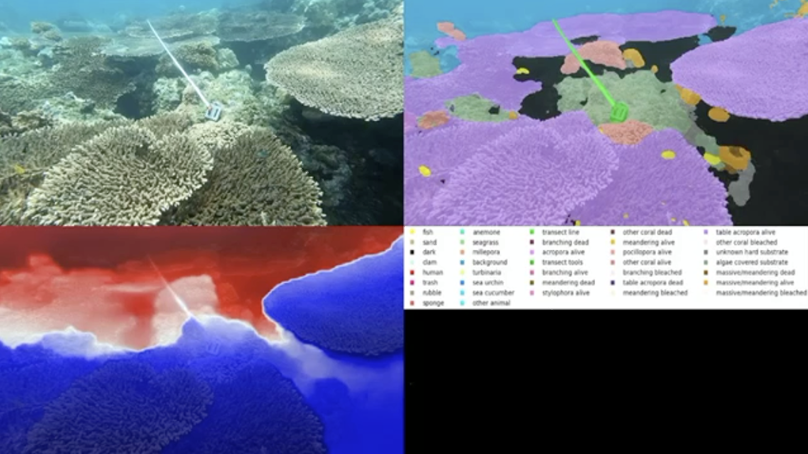
|
DeepReefMap:
Scalable Semantic 3D Mapping of Coral Reefs with Deep Learning
Jonathan Sauder, Guilhem Banc-Prandi, Anders Meibom, Devis Tuia Methods in Ecology and Evolution, 2023 Project Page / ArXiv / Wiley Self-supervised deep SLAM is combined with semantic segmentation on a new coral reef video dataset, creating a method for automatically analyzing video transects of reefs at unprecedented speed and cost-efficiency. |
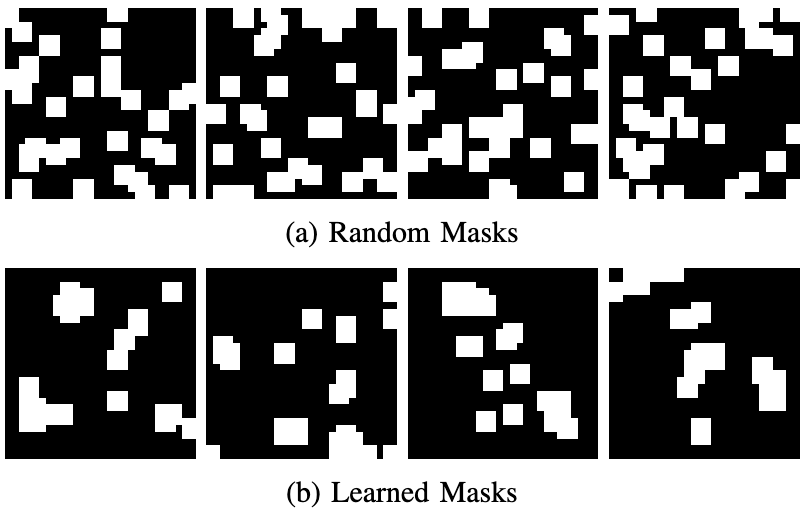
|
Gradient-Based Learning of Discrete Structured Measurement Operators for
Signal Recovery
Jonathan Sauder, Martin Genzel, Peter Jung IEEE Journal on Selected Areas in Information Theory: Deep Learning Methods for Inverse Problems, 2022 ArXiv / Paper Combining unrolled compressed sensing techniques with Gumbel-top-K allows learning compressed sensing matrices that follow imposed structure by real-world applications. |
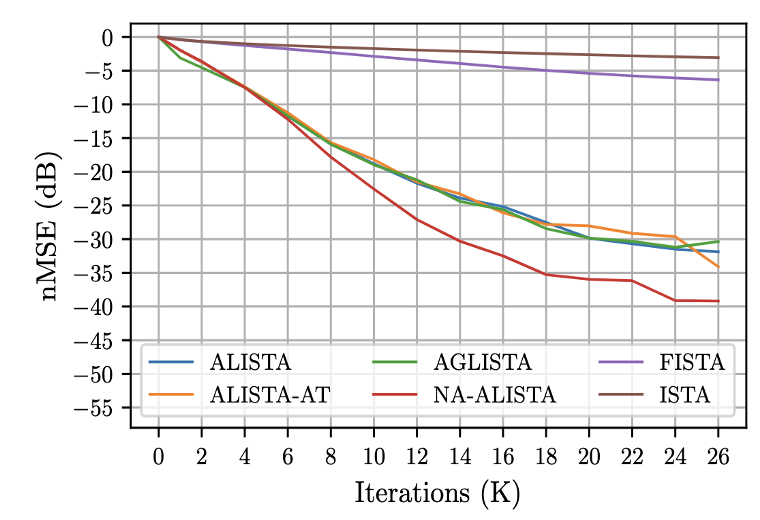
|
Neurally Augmented ALISTA
Freya Behrens, Jonathan Sauder, Peter Jung ICLR, 2021 GitHub / OpenReview / Paper A tiny LSTM component in unrolled compressed sensing for sparse signal reconstruction can significantly push the phase transition, with insights on how the LSTM chooses the optimal reconstruction thresholds and steps. |
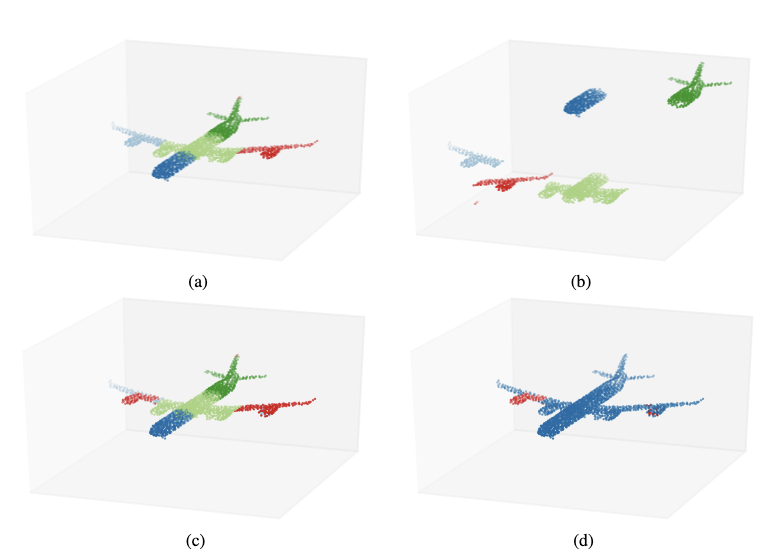
|
Self-supervised deep learning on point clouds by reconstructing
space
Jonathan Sauder, Bjarne Sievers NeurIPS, 2019 Paper One of the first approaches to do self-supervised learning directly on point cloud data, learning to undo masking and reshuffling. |
The Transnational Red Sea Center |
|
This website uses Jon Barron's temaple. |